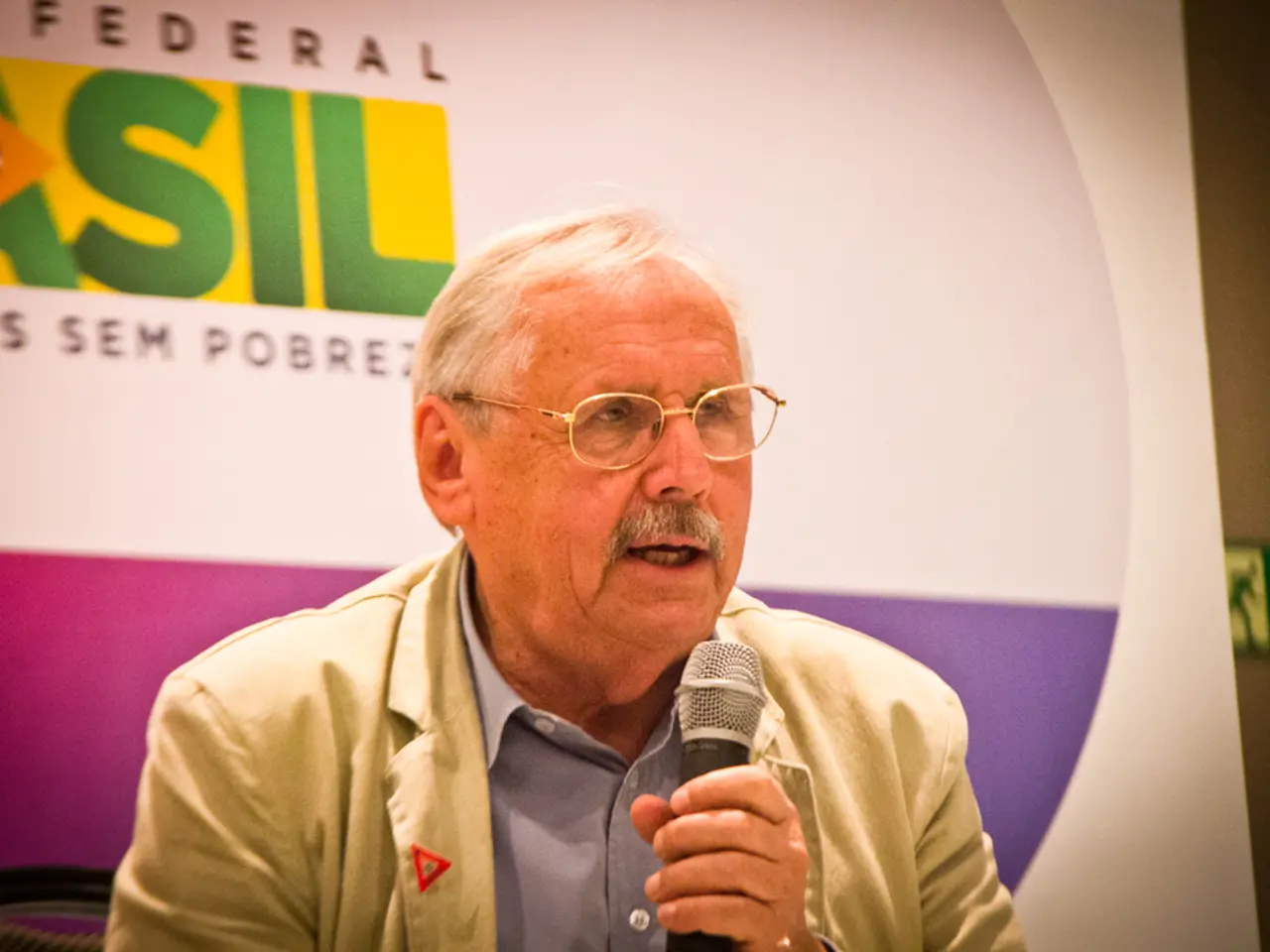A Showdown Over Russian Journalists in Germany
Moscow instructs German ambassador to U.S. for formal compliance
Germany's treatment of Russian journalists working in the country has turned into a fiery dispute, with Moscow accusing Berlin of persecuting journalists and threatening retaliation. The Russian Foreign Ministry has summoned German Ambassador Alexander Graf Lambsdorff to voice their displeasure and outline potential countermeasures.
According to Russian state-run news agency Tass, this issue centers around Sergei Feoktistov, the head of Russia's state media in Berlin, who was ordered to leave the country. Feoktistov's family—his wife and daughter—have had their passports confiscated, a move allegedly meant to prevent them from going into hiding.
German authorities have rejected the extension of Feoktistov's residence permit, and reports suggest he must vacate the Federal Republic by August 19. The European Council sanctioned the media group Feoktistov represents in February 2023[1][2][3].
Russian Foreign Ministry spokeswoman Maria Zakharova, in an outspoken statement, accused Germany of ignoring its obligations to protect press freedom and freedom of opinion. She contends that Germany is deliberately making it difficult for Russian journalists to stay in the country and do their jobs[1][3][4].
Germany has vigorously denied these allegations, stressing its commitment to upholding the rule of law and protecting freedom of expression. Berlin maintain they are not targeting Russian journalists and confrontations like these are contrary to their beliefs[5].
The escalating tensions between Germany and Russia are a tangible reflection of the increasingly strained bilateral relations since Russia's invasion of Ukraine in February 2022. Germany has been a stalwart supporter of Ukraine, providing significant military and financial aid, while the EU banned Russia Today in 2022 for spreading Kremlin disinformation regarding the conflict[1][3]. In retaliation, Russia has blocked many Western media outlets and imposed restrictions on foreign journalists[1][3].
By formally summoning the German ambassador, the Russian government is making it clear they are highly displeased. German Chancellor Friedrich Merz, after meeting with Austria's head of government Christian Stocker, stated, "I have yet to evaluate the summoning of the German ambassador in Moscow." He claimed he had not received a report on the matter and had only taken note of it[6]. The Foreign Office is yet to respond to the incident[7].
[1] Foreign Policy
[2] The Guardian
[3] The New York Times
[4] Deutsche Welle
[5] Der Spiegel
[6] German Chancellor's Official Website
[7] German Foreign Office's Official Website
- The Russian Foreign Ministry might consider restricting the activities of German broadcasters in Russia, as a potential countermeasure, following the expulsion of Russian journalist Sergei Feoktistov and the confiscation of his family's passports in Germany.
- In addition to the heated discussions surrounding Russian journalists in Germany, it's also possible to hear about this issue on general news radio programs, with some stations providing extensive coverage of the politically charged conflict.






